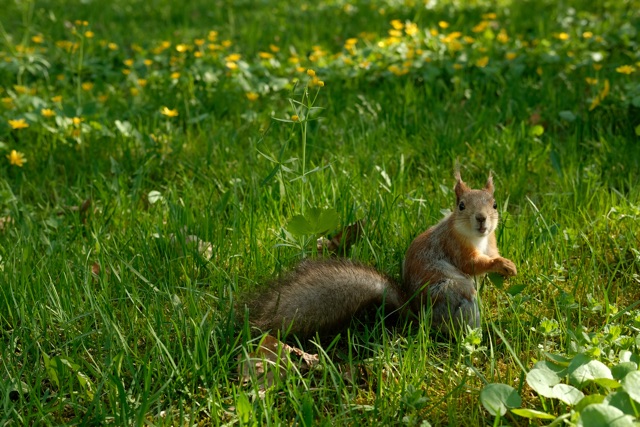
For years, squirrels have captivated our attention and creativity with their bushy tails and lively behaviours. However, these fuzzy critters bring with them a slew of myths and beliefs that have been passed down through the generations. It’s time to clear the air and distinguish fact from fantasy when it comes to these endearing rodents. To obtain a better understanding of these interesting critters, we shall debunk some of the most frequent squirrel myths in this post.
Myth 1: Because squirrels are rodents, they are filthy and carry diseases.
While squirrels are rodents, it is wrong to think that they are necessarily unclean or are all disease-carrying creatures. Squirrels, like all animals, can carry diseases or parasites, but they are not significant vectors of human diseases. Healthy squirrels play an important part in ecosystem maintenance by spreading seeds and regulating bug populations in the wild.
Myth number two: Squirrels only eat nuts.
While nuts are an important element of their diet, squirrels are opportunistic feeders with a wide range of tastes. They are omnivores, which means they consume a wide range of items such as fruits, berries, fungi, insects, bird eggs, and even tiny vertebrates. Their diet might change depending on the availability of food in their environment.
Squirrels do not hibernate throughout the winter.
Squirrels, unlike bears and other mammals, do not hibernate throughout the winter. Instead, they are active all year, accumulating food in the fall to last them through the winter. They store nuts and seeds in various areas and rely on them to survive when food is scarce.
Myth 4: Squirrels can remember where they hid their food.
While squirrels have excellent spatial memory, they do not recall where they have stashed all of their food. According to research, they use a combination of memory, geographical cues, and their excellent sense of smell to locate stashed food. This is why some buried nuts are never recovered, and why new trees occasionally sprout from forgotten caches.
Myth 5: Humans are attacked by squirrels.
Squirrels are not often violent toward humans and will usually avoid confrontation if given the opportunity to flee. If they feel threatened, they may become defensive, but they are unlikely to attack unprovoked. Squirrels in metropolitan areas are habituated to human presence and are less fearful of humans.
Squirrels are a nuisance and should be eradicated.
Squirrels are an important element of the environment, and labelling them as pests is overly simplistic. While squirrels can sometimes cause property damage, there are ethical and humane approaches to resolve squirrel issues without resorting to extermination. Preventive steps, such as protecting attics and utilizing squirrel-proof bird feeders, can assist to mitigate possible problems.
